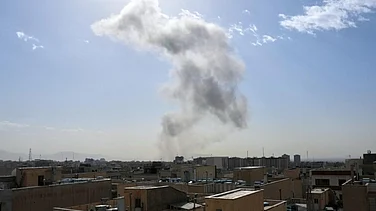
Bangladesh’s interim authorities have issued a warning to print, broadcast and digital news outlets, instructing them not to circulate any comments or statements attributed to deposed prime minister Sheikh Hasina.
The agency expressed “deep concern” that certain news organisations had continued airing or publishing remarks linked to Hasina, stressing that doing so contravenes provisions of the Cyber Security Ordinance.
While emphasising respect for press freedom, the agency urged media outlets to avoid disseminating any “violent, instigating or criminally provocative” comments from convicted individuals and reminded them of their legal responsibilities.
Bangladesh’s interim authorities have issued a warning to print, broadcast and digital news outlets, instructing them not to circulate any comments or statements attributed to deposed prime minister Sheikh Hasina. Officials say the directive is meant to safeguard national security and prevent unrest.
In a statement released Monday, the National Cyber Security Agency (NCSA) argued that messages attributed to Hasina, described in the notice as both “convicted and fugitive,” could include orders or appeals that might provoke “violence, disorder and criminal activities” and jeopardise social stability, The Daily Star reported.
“We urge the media to act responsibly in the interest of national security,” the NCSA said in its announcement.
The agency expressed “deep concern” that certain news organisations had continued airing or publishing remarks linked to Hasina, stressing that doing so contravenes provisions of the Cyber Security Ordinance. Under the law, authorities may “remove or block content that threatens national integrity, security or public order, promotes ethnic or religious hatred, or directly incites violence.”
The NCSA also reiterated that impersonation or unlawful access to digital systems for the purpose of spreading hate speech, ethnic provocation or calls for violence constitutes a criminal offence. Such violations carry penalties of up to two years’ imprisonment and/or fines reaching Tk 10 lakh.
While emphasising respect for press freedom, the agency urged media outlets to avoid disseminating any “violent, instigating or criminally provocative” comments from convicted individuals and reminded them of their legal responsibilities.
The warning came on the same day Bangladesh’s International Crimes Tribunal (ICT) sentenced the 78-year-old former leader to death in absentia for “crimes against humanity” linked to her government’s harsh suppression of student-led demonstrations last year. Former home minister Asaduzzaman Khan Kamal received a death sentence on comparable charges.
Hasina has been residing in India since fleeing Bangladesh on August 5 of last year amid widespread protests. She had previously been declared a fugitive by the courts.
Reacting to the tribunal’s decision, Chief Adviser Muhammad Yunus welcomed the ruling, saying it underscored the principle that “no one, regardless of power, is above the law.”
Hasina, however, rejected the verdict, calling the accusations “biased and politically motivated” and insisting the judgment was delivered by a “rigged tribunal” under an “unelected government with no democratic mandate.”
With PTI input



























